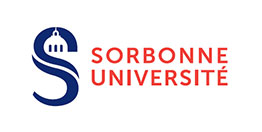The Bachelor in Chemistry from Sorbonne Université
At the moment, all chemistry teachings are given in French, yet the undergraduate Department of Chemistry has decided to progressively internationalize its courses by: (i) providing more and more reference documents in English (courses, training and experiment books), (ii) proposing Teaching Units (TUs) validation tests in English and (iii) tentatively opening small student groups with teachings in English.
PRESENTATION
Following the introduction of the Major/Minor system, the Bachelor of Sciences, Technologies, Health in Chemistry from Sorbonne Université now offers the opportunity to combine the major in chemistry with:
• a complement in chemistry for the monodisciplinary program (60 ECTS/year)
• a minor of another discipline (in sciences, arts or humanities) for the bidisciplinary programs (60 ECTS/year)
• another scientific major for the bachelor dual programs (72 ECTS/year)
DEGREES DELIVERED
Both the mono- and bidisciplinary programs deliver the undergraduate degree in chemistry from Sorbonne Université enabling pursuance in a master of chemistry and more particularly in all the areas of specialty of the Master of Sciences and Technologies in Chemistry from Sorbonne Université.
If successful, a bachelor dual program delivers simultaneously the undergraduate degree in chemistry from Sorbonne Université and that of the associated discipline. Students on a bachelor dual degree have the choice to pursuit their studies in a master in chemistry or in masters of the associated discipline.
TERMS OF ACCESS
For students from Sorbonne Université
Entering the 2nd year-level (L2) of the mono- and bidisciplinary programs is straightforwardly proposed to students who have (i) validated at least one semester of the 1st year-level (L1) from Sorbonne Université and (ii) have followed the 1C002 Teaching Unit during the 2nd semester of L1 (L1-S2). The registration is subjected to an online pre-registration (see information provided by the Integration Cycle Department).
Application to the bachelor dual programs is reserved for students not repeating a school year and who have validated the L1-S2 Teaching Units of the two disciplines chosen. The admission to these demanding programs is done after examination of the student records by a bidisciplinary commission provided that the L1 has been validated.
For external applicants
Students coming from other French or foreign universities can also apply to enter the 2nd or 3rd year-levels (L2 and L3). Application to the bachelor dual programs is possible. he admission is done through the review of the applications files by a scientific, eventually bidisciplianry, board. The admission procedure is open every year in the course of May on the Sorbonne Université website.
Major in chemistry
The Teaching Units of the major in chemistry provide a high-level foundation in the main branches of chemistry and allow a continuation of study in this discipline. The general structure of the major in chemistry is presented in the monodisciplinary program below.
The 2nd year-level training program (L2) provides both theoretical and practical knowledge in chemistry. The 3rd year-level training program (L3) offers students the opportunity to further develop their knowledge and to reinvest it during an internship or a project work.
Monodisciplinary program
This program is particularly suitable for students wishing to pursue their study in a master in chemistry. It strengthens the students’ theoretical and experimental skills and offers introductory courses in other areas of chemistry and, in particular, those related to industrial sector.
Bidisciplinary and bachelor dual programs
These programs allow a progressive orientation and the demanding but very formative association of two different disciplinary cultures. Depending on the disciplines associated with chemistry, these programs may be particularly relevant for continuing one’s study in some master’s specialties. The association with physics is for instance highly recommended for continuation of study in a master in teacher and trainer training (MEEF master).
One can download, below, the different bidisciplinary programs with the presentation of the Teaching Units (in French at the moment). In bold are the bidisciplinary combinations also proposed for the bachelor dual programs:
Bidisciplinary programs (60 ECTS/year):
Major in Chemistry - Minor in Earth sciences
Major in Chemistry - Minor in Life sciences
Major in Chemistry - Minor in Physics
Major in Chemistry - Minor in Computer science
Major in Chemistry - Minor in Electronics, electric energy, automatic
Major in Chemistry - Minor in Mathematics
Major in Chemistry –Minor in Mechanics
Major in Chemistry - Minor in Transdisciplinary Thematics (TT)
Bachelor dual programs (72 ECTS/year):
Chemistry - Life sciences
Earth sciences - Chemistry
Physics – Chemistry
Minor in chemistry
One can also enroll in a bidisciplinary program with a minor in chemistry. For more information about the Teaching Units of the majors of other scientific disciplines, one must contact the corresponding undergraduate departments (Bachelors of Sciences, Technologies, Health in Computer science, Earth sciences, Electronics, electric energy, automatic, Life sciences, Mathematics, Mechanics, Physics and Transdisciplinary Thematics).
